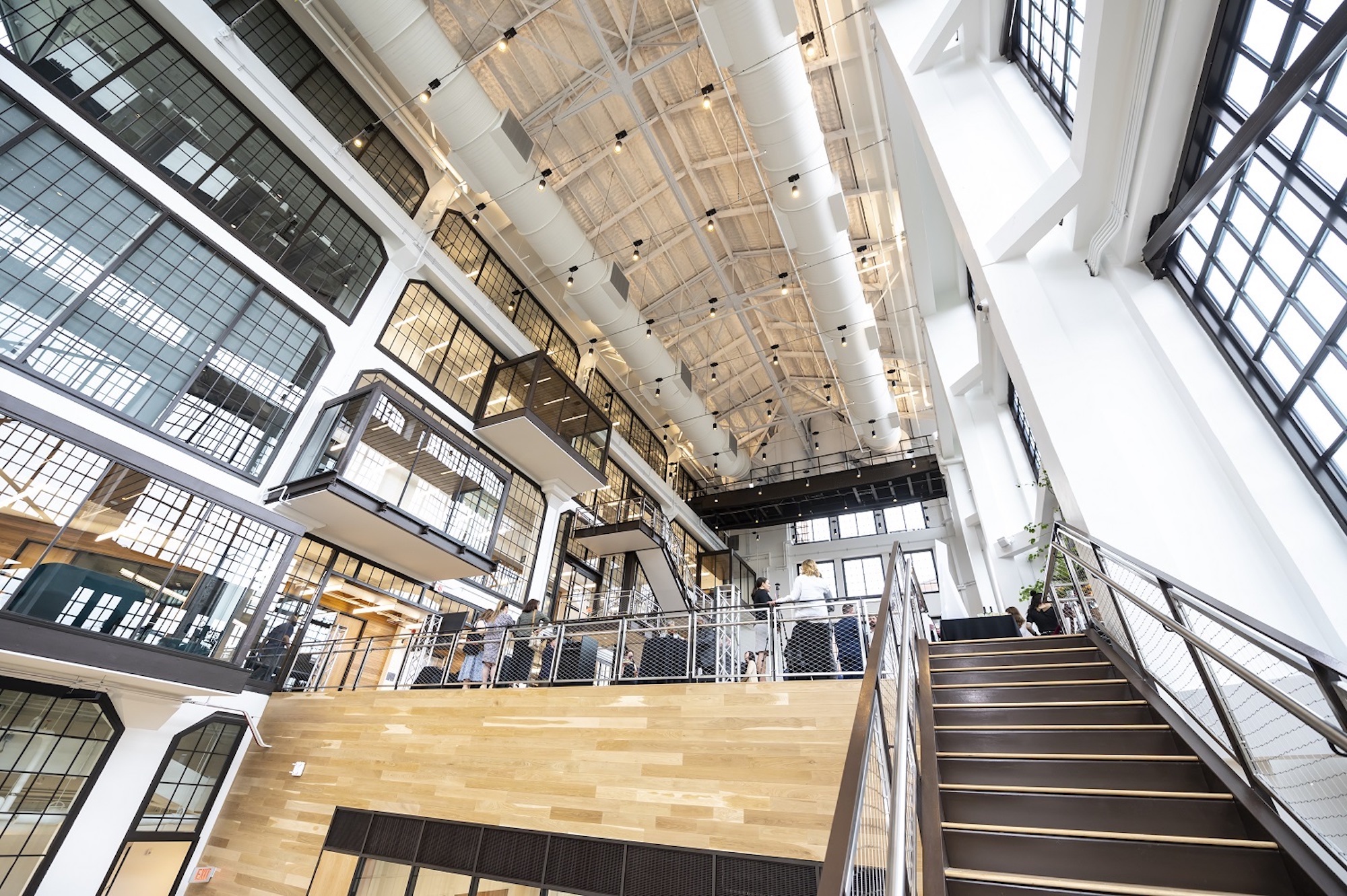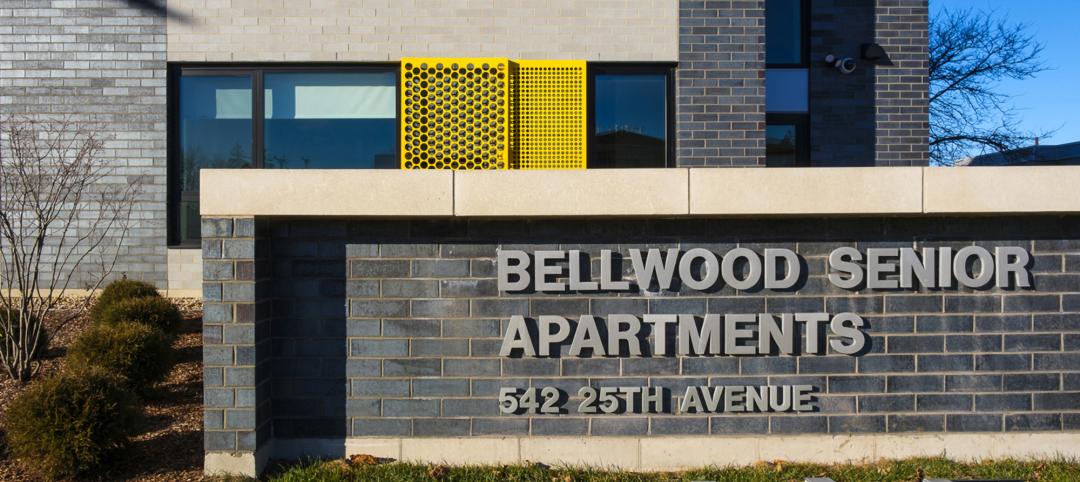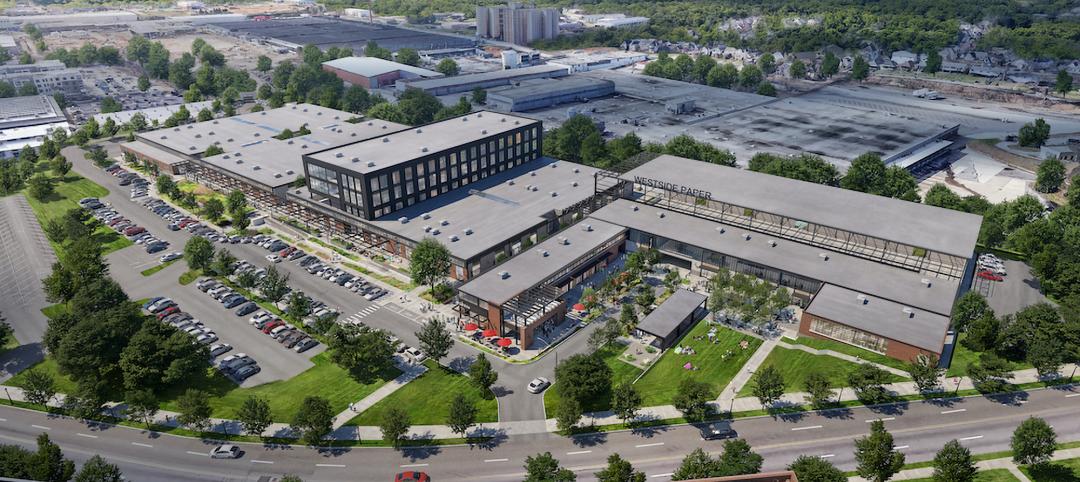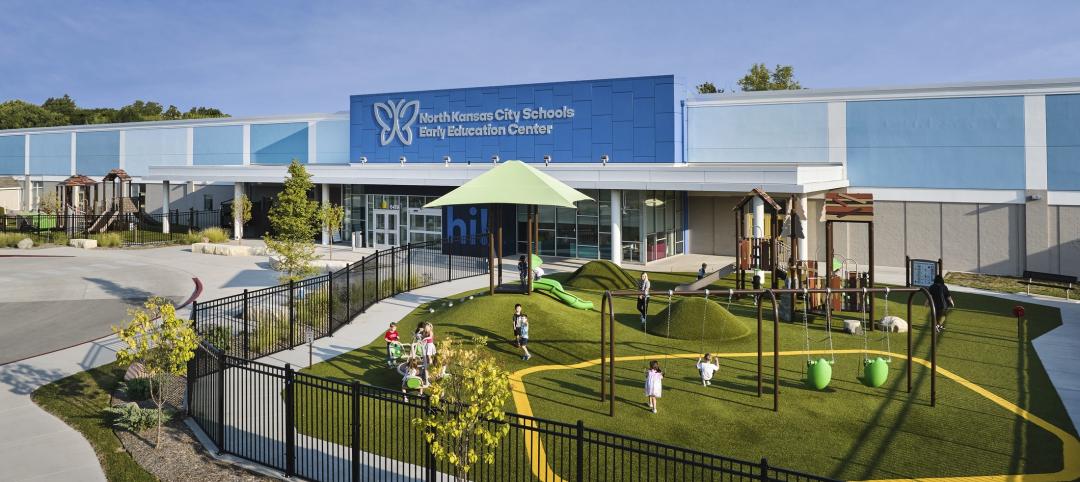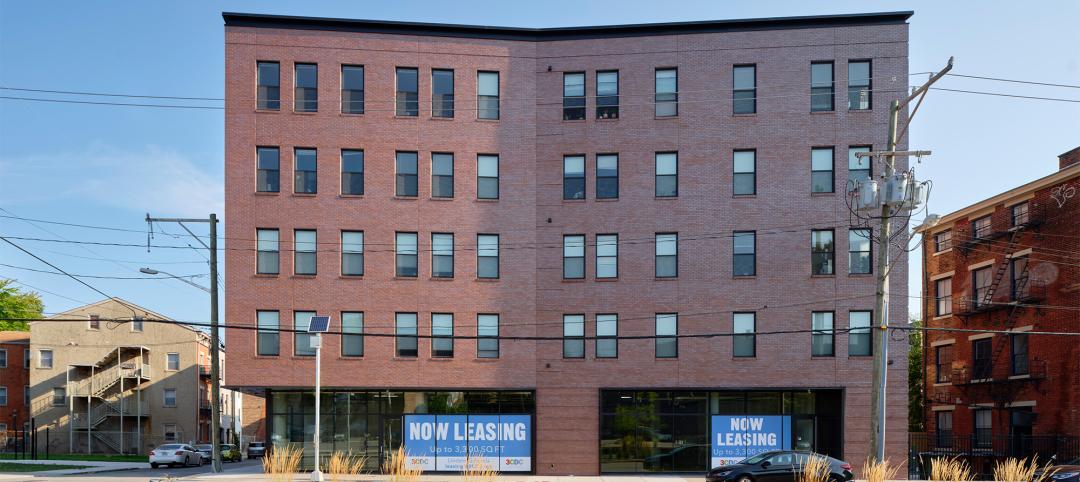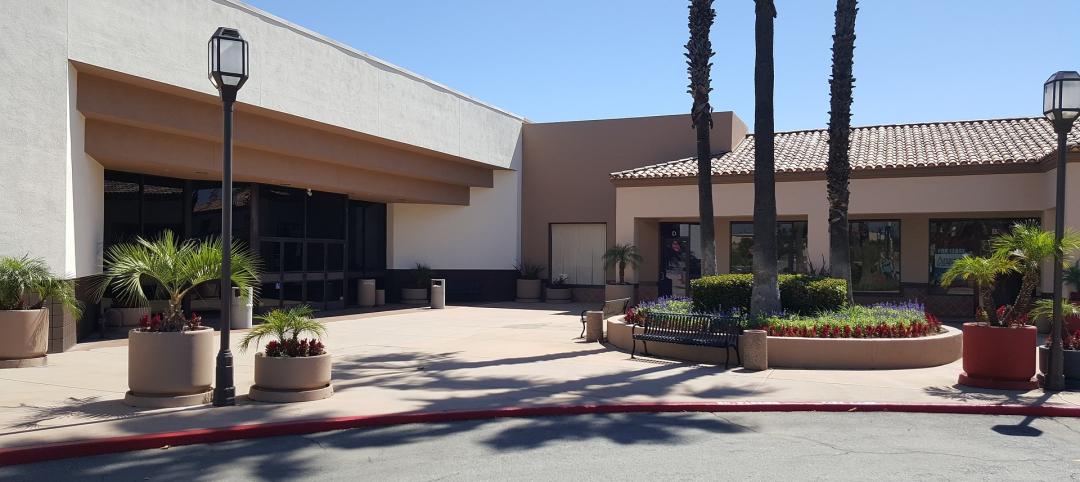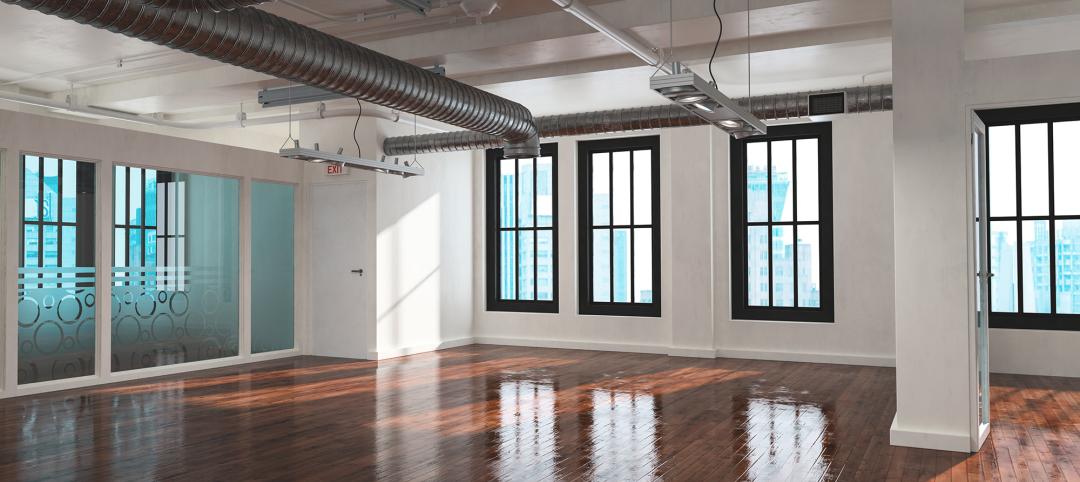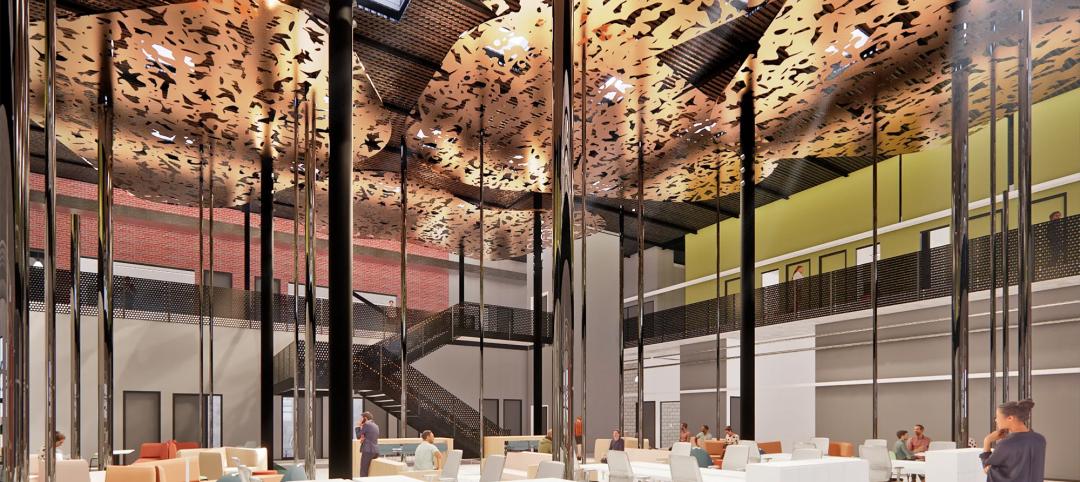Today, The Assembly is a state-of-the-art life sciences research and innovation facility. But the century-old building began as a Model-T assembly line and showroom for the Ford Motor Company in the Bloomfield neighborhood of Pittsburgh.
Developed by Wexford Science & Technology, The Assembly opened earlier this year and more recently achieved LEED Gold certification for its design, construction, and operations practices, which focused on improving environmental and human health. The Assembly is the University’s 18th project to earn a LEED certification since 2005, when it received its first LEED Gold certification for the McGowan Institute of Regenerative Medicine.
The newest LEED Gold certification aligns with the school’s and the community’s larger sustainability efforts, including the Plan for Pitt, the Pitt Sustainability Plan, and a commitment to third-party certified green buildings. The university intends to reach carbon neutrality both on- and off-campus by 2037.
Designed by ZGF and built by Turner Construction, The Assembly diverted nearly 90% of construction waste from the landfill. Of its renovation materials, 56% were regional and 32% recycled. Close to public transit, The Assembly provides bicycle storage and changing rooms, as well as 30 electric vehicle chargers.
The Assembly is part of a 355,000-sf life science redevelopment complex in the former Ford plant. The research taking place at The Assembly includes cancer biology and immunology, among other areas.
Constructed in 1915, the Ford Motor Company Assembly Plant housed Model-T production, showroom, and sales until 1932. As a dealership, it remained in business until 1953, then sat largely vacant. In 2018, the original building was named to the National Register of Historic Places, and the University of Pittsburgh and Wexford acquired the property and announced redevelopment plans.
On the Building Team:
Developer: Wexford Science & Technology
Capital partner: Ventas
Design architect and architect of record: ZGF Architects
MEP engineer: AEI
Structural engineer: Thornton Tomasetti
Construction: Turner Construction
Related Stories
Senior Living Design | Jan 24, 2024
Former Walgreens becomes affordable senior living community
Evergreen Real Estate Group has announced the completion of Bellwood Senior Apartments. The 80-unit senior living community at 542 25th Ave. in Bellwood, Ill., provides independent living options for low-income seniors.
Adaptive Reuse | Jan 23, 2024
Adaptive reuse report shows 55K impact of office-to-residential conversions
The latest RentCafe annual Adaptive Reuse report shows that there are 55,300 office-to-residential units in the pipeline as of 2024—four times as much compared to 2021.
Adaptive Reuse | Jan 18, 2024
Coca-Cola packaging warehouse transformed into mixed-use complex
The 250,000-sf structure is located along a now defunct railroad line that forms the footprint for the city’s multi-phase Beltline pedestrian/bike path that will eventually loop around the city.
Adaptive Reuse | Jan 12, 2024
Office-to-residential conversions put pressure on curbside management and parking
With many office and commercial buildings being converted to residential use, two important issues—curbside management and parking—are sometimes not given their due attention. Cities need to assess how vehicle storage, bike and bus lanes, and drop-off zones in front of buildings may need to change because of office-to-residential conversions.
K-12 Schools | Jan 8, 2024
Video: Learn how DLR Group converted two big-box stores into an early education center
Learn how the North Kansas City (Mo.) School District and DLR Group adapted two big-box stores into a 115,000-sf early education center offering services for children with special needs.
Affordable Housing | Dec 14, 2023
What's next for affordable housing in 2024?
As 2023 draws to a close, GBBN’s Mary Jo Minerich and Amanda Markovic, AIA sat down to talk about the future. What’s next in terms of trends, technology, and construction of affordable housing?
MFPRO+ News | Nov 21, 2023
Underused strip malls offer great potential for conversions to residential use
Replacing moribund strip malls with multifamily housing could make a notable dent in the housing shortage and revitalize under-used properties across the country, according to a report from housing nonprofit Enterprise Community Partners.
Office Buildings | Nov 10, 2023
3 important early considerations for office-to-residential conversions
Scott Campagna, PE, Senior Director of Housing, IMEG Corp, shares insights from experts on office-to-residential conversion issues that may be mitigated when dealt with early.
Adaptive Reuse | Nov 1, 2023
Biden Administration reveals plan to spur more office-to-residential conversions
The Biden Administration recently announced plans to encourage more office buildings to be converted to residential use. The plan includes using federal money to lend to developers for conversion projects and selling government property that is suitable for conversions.
Government Buildings | Oct 23, 2023
Former munitions plant reimagined as net-zero federal workplace
The General Services Administration (GSA) has embraced adaptive reuse with Building 48, an exciting workplace project that sets new precedents for how the federal government will approach sustainable design.


